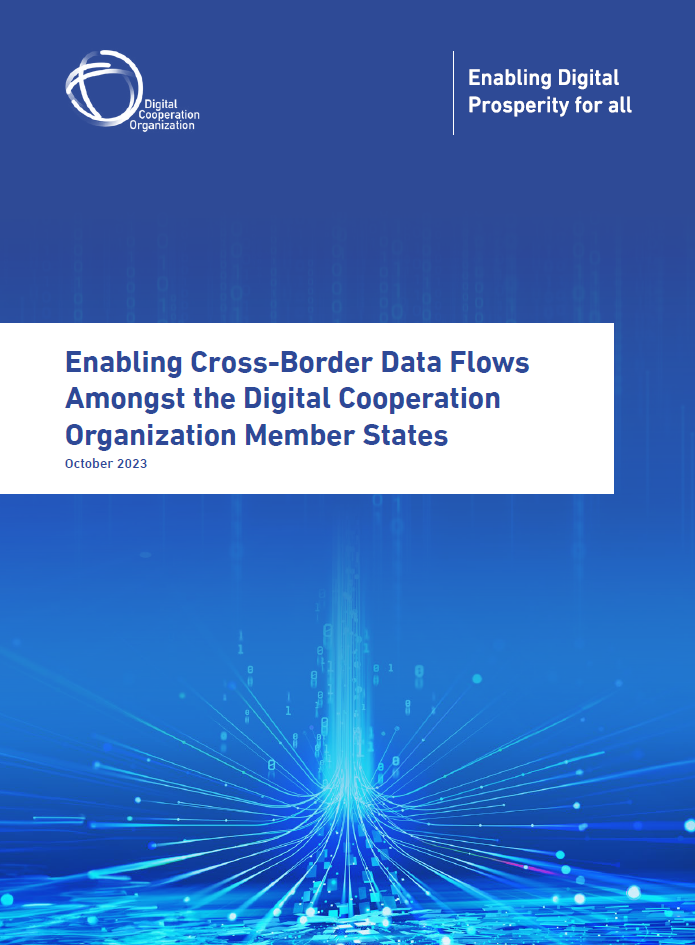
Enabling Cross-Border Data Flows Amongst the Digital Cooperation Organization Member States
October 2023
Data is essential to the digital economy and international trade. However, domestic and regional data governance regulations can limit cross-border data flows, which can have economic and business costs.
This report provides a detailed overview of the data governance regulations of 10 Member States of the Digital Cooperation Organization (DCO). It analyzes how interoperability mechanisms can maximize cross-border flows of data while respecting the national regulatory autonomy.
Interoperability mechanisms take the domestic regulatory environment largely as given and focus instead on the regional, multilateral, and bilateral arrangements that can enable cross-border data flows.
The report outlines steps that DCO Member States can take to develop interoperability mechanisms, with a focus on enabling flows of personal data, linking financial payment systems, and cross-border recognition of Digital IDs. In addition, the report recommends that DCO Member States explore ways to agree on common data governance principles, which can act as a baseline for domestic regulation and build trust in how data will be treated in the recipient country. This will further support the cross-border data flows.
The report also recommends that DCO Member States develop a common data classification scheme that will support interoperability mechanisms and provide guidance to businesses holding data on how to classify data and understand its risks.
Interoperability mechanisms can help DCO Member States maximize the opportunities from cross-border data flows while also safeguarding privacy, consumer protection, and pursuing their national interests.
